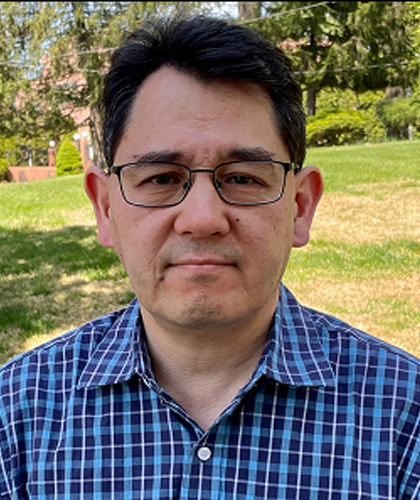
Horiuchi, Timothy
The Institute for Systems Research
Maryland Robotics Center
Brain and Behavior Institute
Robert E. Fischell Institute for Biomedical Devices
Dr. Horiuchi joined the University of Maryland faculty as an Assistant Professor in 1999 as a part of the microelectronics group in the Electrical and Computer Engineering Department. He is a co-director of the Computational Sensorimotor Systems Laboratory and is a member of the Neurosciences and Cognitive Sciences Program at the University of Maryland. Dr. Horiuchi is one of the directors of the annual Telluride Neuromorphic Engineering Workshop and is involved in the growth of this international research community. He is also a member of the IEEE.
Dr. Horiuchi has had diverse experience in industrial research, having served with many companies (Hughes Aircraft, Boeing, IBM, Hewlett-Packard, Tanner Research) during his educational period.
Dr. Horiuchi's general research interests are in computational neuroscience and the implementation of neural circuit architectures in VLSI-based processors. The applications of interest center around the coordination of complex sensory processing and control of motor systems. He has been involved in the development of analog VLSI chips that perform auditory and visual localization, implement non-volatile, on-chip analog memories, and control small mobile robotics. He is also involved in efforts to improve the tools and techniques used in neurophysiology. His current focus is the understanding of the bat echolocation system.
Honors and awards
Elevate Fellow, University of Maryland, 2019
ISR Outstanding Systems Engineering Faculty Award, University of Maryland, 2004
NSF Faculty Early Career Development (CAREER) Award for "Adaptive Neuromorphic VLSI for Improving Accuracy and Precision: Modeling Attention for Bat Echolocation," 2004
Bat echolocation; computational neuroscience; learning systems; neuromorphic VLSI design; constrained optimization circuits; mobile robotics; neural recording and spike-sorting techniques and tools